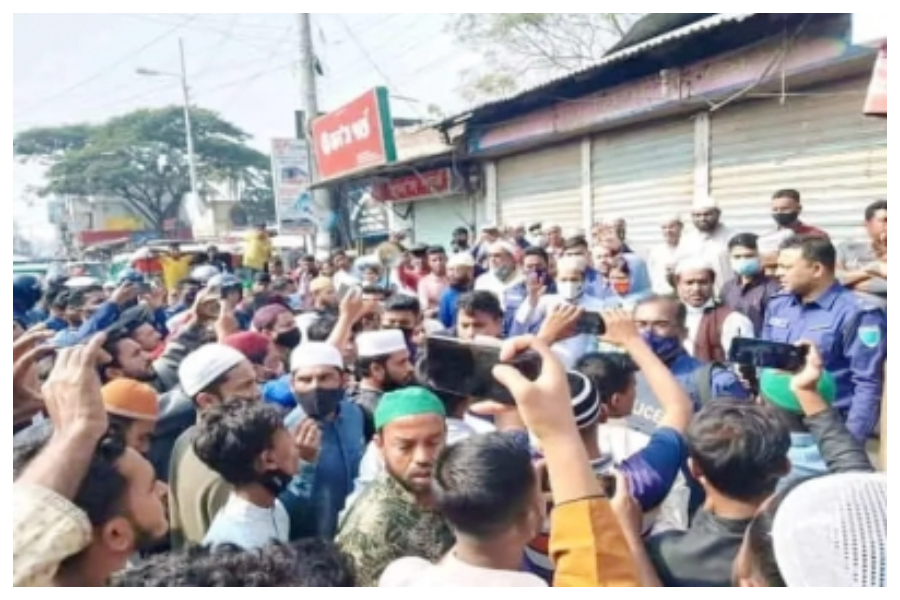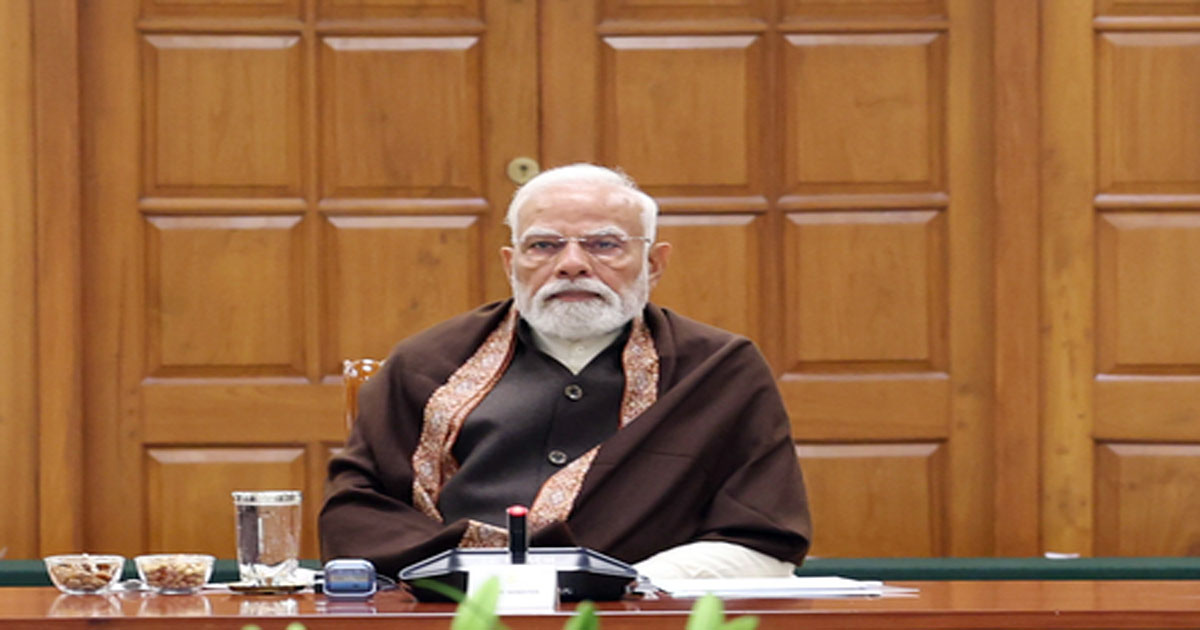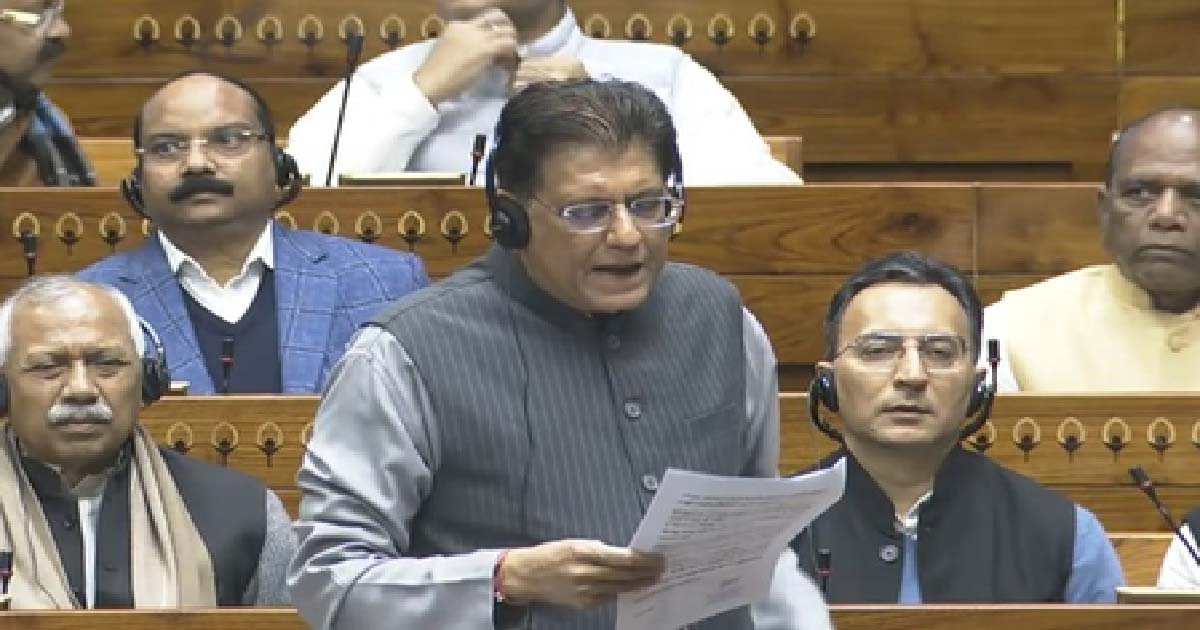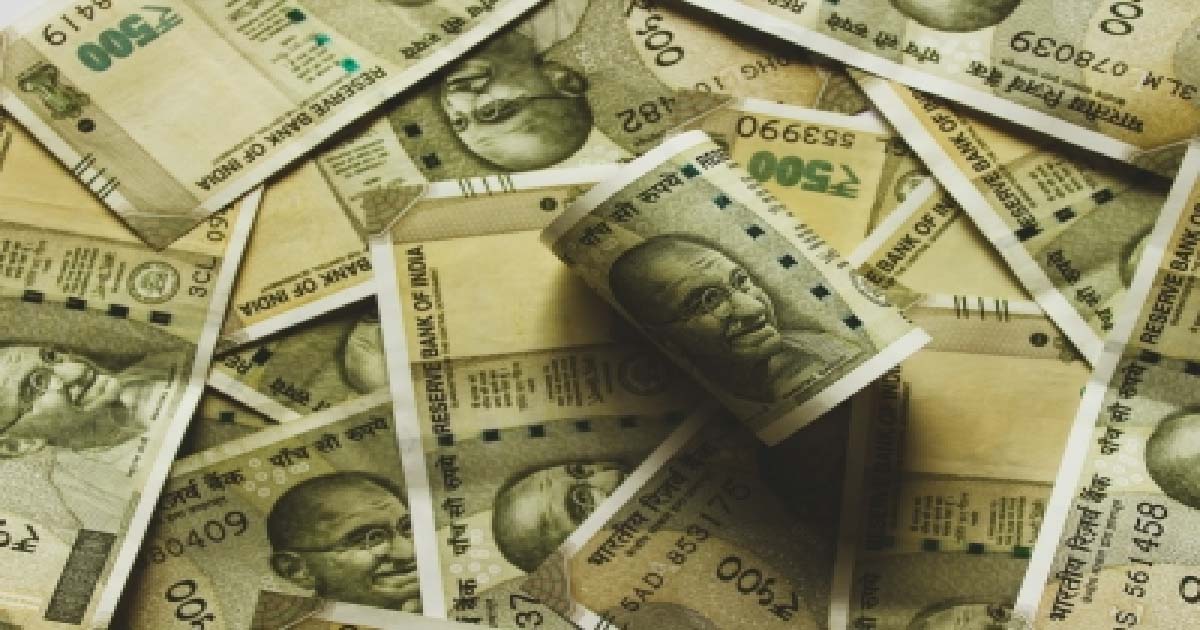International News
Sheikh Hasina’s toughest challenge-defeating the rising tide of Islamism in Bangladesh

The spurt of incidents of attacks on Hindu minority community in Bangladesh in recent times brings into focus the increasing influence of Islamists in that country despite the Hasina government’s profession of secularism and its attempt to maintain that credential. Islamism in Bangladesh is rising precipitously, permeating every aspect of life and has taken root as much in urban centres as in rural communities.
To quote a perceptive analyst: “Everywhere – from modern business office to daily social life – Islamic codes tend to exert authority. Burqa and hijab-wearing women who vow to uphold such a system are numerous, and so are men with Islamic zeal. Two decades ago, most Bangladeshis would have considered such behaviours ludicrous.”
Sufferings of the community continues since the mayhem that took place during the Durga puja in October last when Hindu properties were looted, their houses were burnt into ashes leaving four people dead and many others injured, temples were desecrated and set on fire over a contrived blasphemy issue of the copy of Holy Koran found near the image of Hindu God Hanuman. The government had to deploy para-military forces in 22 districts of Bangladesh then.
The latest incident took place on February 8 when five brothers of a Hindu family were crushed to death injuring two others of the same family by a pick-up truck in what is believed to be a ‘premeditated’ attack according to the surviving members of the family.
The incident took place in Chakaria Upazila in Cox Bazar district in the Chittagong Division of Bangladesh. ‘Hindu Lives Matter’, an organisation that has sprang up recently has reported about another incident of physical violence and forceful occupation of a clinic-cum -residence of a Hindu family outside Dhaka by a well-known film actor named Jayed Khan and his associates. Examples of such torture and harassment of Hindu families abound.
Even while the Sheikh Hasina government is mindful of the predicaments of the Hindu minority and tries to protect them from the onslaught of the Islamist communal elements, it has not really succeeded in providing the community a sense of security and fear-free atmosphere in the country resulting in migration and a slow process of dwindling of their numbers in Bangladesh. What accounts for this dichotomy of the government remaining by and large secular but the vast section of the population are communal and Islamist in their preferences? The reason lies in the very birth of Bangladesh in 1971.
While the commitments of the Awami League (AL) that brought independence to the country after a brutal oppression by the Pakistani military, and of Bangabandhu Sheikh Mujibur Rahman to a secular polity were unquestionable, they could not rid the newly emerging country of the scourge of communalism and of the poison of religion-oriented politics of the Pakistani days. The majority undoubtedly went along with the secular politics of the AL and of Bangabandhu, but there were still a major section of people from the armed forces and from the Jamaat-e-Islami, Bangladesh’s leading Islamist organization, who could not reconcile to their separation from Pakistan, their umblical chord.
The Jamaat-e-Islami – which was banned soon after independence for its collaboration with Pakistan and role in massacring thousands of secular Bangladeshis – was resurrected in late 1975 by the elements that were responsible for the brutal killing of Bangabandu and members of his family. It was not just Sheikh Mujib and his family alone but many of his associates and other secular figures were annihilated by the Islamist elements.
The military regimes that followed after that under Generals Ziaur Rahman and Ershad patronized the Islamist elements whose numbers grew exponentially during those periods. The civilian rule under the Bangladesh Nationalist Party (BNP), now led by General Zia’s widow Begum Khaleda also encouraged the Islamist forces to grow. Even while the BNP was founded as a nationalist centre-right party, it began to veer towards the Islamic elements to compete with Awami League’s secularism.
The BNP was born in the military barracks, and its founder and military ruler General Ziaur Rahman had legitimised the pro-Pakistani collaborators by removing the ban on them. Its brand of Bangladeshi nationalism is religion-driven. The BNP had made its political preference clear when it formed the government in 2001 with pro-Pakistan Jamaat-e-Islami as its coalition partner. For the next five years of the BNP-Jamaat reign, a surfeit of Islamist radical terror groups like HUJI (Harkat-ul- Jihad al-Islami), JMB (Jamaat-ul-Mujahideen Bangladesh) and Ansarullah Bangla Team surfaced or consolidated their position in Bangladesh, unleashing horrible pogroms against minority Hindus, Buddhists and Christians.
Another organisation that has taken the centre stage since 2010 in Islamist politics in Bangladesh, other than Jamaat, is Hefazat-e-Islam Bangladesh, an Islamic advocacy group of madrassah teachers and students. The formation was allegedly triggered by the 2009 “Women Development Policy” draft.
On February 24, 2010, Hefazat wanted to hold a rally at Laldighi Maidan, Chittagong to protest the government’s move to slap a ban on religion-based politics, cancellation of the Fifth Amendment to the Constitution, and a proposed education policy that would have ended madrasah education. The police refused their request to hold a rally and injured 19 protesters.
A few of these madrasa students were arrested by police and later released. In 2011, Hefajat-e-Islam protested some aspects of the proposed Women Development Policy. According to The Economist, Hefazat is financed by doctrinaire Islamists in Saudi Arabia. In 2013, it gained most prominence when secular and atheist Bangladeshis rallied to demand the execution of Jamaat leaders convicted for war crimes committed during the 1971 Liberation War, the Hefazat took to the streets and counter-mobilized massive support.
It submitted at the time to the government of Bangladesh a 13-point charter, which included the demand for the enactment of a blasphemy law with death sentence to its victims, mandatory Islamic education, and a ban on intermixing of men and women and followed this up by mobilising thousands of madrassa students for a “siege” of Dhaka.
The Awami League (AL) was quite unnerved by Hefajat’s power of street protests and mobilization of Islamists elements and in course of time decided to coopt the organisation into a coalition in order to counterbalance its rival party, BNP which has Jamaat as its partner, and in the process had to grant certain concessions to Hefajat. AL’s strategy paid dividends for some time as Hefajat being in the coalition toned down its militancy. But the appeasement policy did not succeed for long, as over the last 2 years, it has again resumed its militant politics finding expression in the defacing of statues, particularly of Sheikh Mujibur Rahman, and attack against minority community at the slightest pretext, leading the AL government to impose restrictions on its activities turning the organization at loggerheads with the government.
For, over the past years the Islamists have unleashed violence against them by killing writers and cultural activists, damaging statues in public squares, and setting off bombs at cultural gatherings. To their dismay, the Islamists now dictate what social and cultural norms should be.
Islamism receives impetus also from Saudi patronage and funding of large number Islamic institutions and Mosques. Since the late 1970s, Saudi Arabia funded the construction of thousands of radical mosques and madrasas. Today, Hefazat-e-Islam, controls over 14,000 mosques and madrasas where up to 1.4 million students get an Islamic education without any state supervision. These mosques and madrasas are thought to be breeding ground of radicalism in the country.
Military rulers abused religion to consolidate their power in Bangladesh and Saudi Arabia used this opportunity to fund radical mosques and madrasas. Saudi Arabia has also patronized Islamist parties including Jamaat-e-Islami in Bangladesh whose sole objective is to establish sharia and implement Quranic punishments. Saudi influence is also thought to be behind the rising trend among Bangladeshi women to wear black burqas.
Today, Saudi Arabia has about two million Bangladeshi migrant workers who send billions of dollars home annually, making a vital contribution to the economy of the country where one-third of people live in poverty. In exchange for opening the labour market, Saudi Arabia has been allowed to export and promote radicalism in Bangladesh.
In the absence of a viable democratic opposition, as the BNP has almost become a defunct organization with its leader Begum Khaleda Zia remaining either in jail or under house arrest, the political space is captured by the Islamists who are ideologically driven by the goal to replace secular democracy with theocracy. As Hefajat continues to gain a foothold, it is also paving the way for other Islamist groups to achieve political success.
For the Hasina government and the Awami League, a traditionally liberal, centre-left party, the challenge is formidable, as Dhaka must aggressively protect its secular legacy traced to Tagore, Kazi Nazrul Islam and Sheikh Mujibur Rahman and others – the very ideology the party was meant to protect.
Crime
Deeply Shocked: PM Modi offers condolences over Canada shooting incident

New Delhi, Feb 11: Prime Minister Narendra Modi on Wednesday expressed grief over the shooting incident at a school in Canada’s British Columbia and offered his condolences to the families who lost their loved ones while wishing speedy recovery to those who were injured.
“Deeply shocked by the horrendous shooting in Canada. I extend my heartfelt condolences to the families who have lost their loved ones and wish a speedy recovery to the injured. India stands in solidarity with the people of Canada in this moment of profound grief,” PM Modi posted on X.
PM Modi’s statement came after nine people were killed in a mass shooting allegedly by a person, possibly a woman, who committed suicide in a mining town in British Columbia on Tuesday (local time), according to officials.
The area’s federal police Chief Superintendent Ken Floyd said on Tuesday night (local time) that seven people were found dead in a local high school in Tumbler Ridge and two others in a home.
While addressing a virtual news conference, he stated that the alleged shooter was discovered dead in the school.
Floyd, who commands the Royal Canadian Mounted Police (RCMP) northern district in the province, said that about 100 staff and students at the school were safe and were evacuated.
There were indications that the shooter was a woman or someone in female attire.
Citing privacy reasons and the ongoing investigation, Floyd did not disclose if the shooter was a student or an adult, but confirmed that it was the same person mentioned in an active shooter alert sent to phones in the area.
That message described the suspected shooter as a brown-haired female wearing a dress.
Two people with serious injuries were airlifted to a hospital, while 25 were checked for injuries at a local medical centre, according to police.
British Columbia’s Premier David Eby termed the incident an “unimaginable tragedy” and said the “government will ensure every possible support for community members in the coming days”.
Floyd said that they have not yet been able to ascertain the motives for the attack.
“I think we will struggle to determine the ‘why’, but we will try our best to determine what transpired”, he said.
The house was near the school, and the shootings were connected, Floyd said.
Tumble Ridge is a small coal mining town of about 2,400 people in an area famed for dinosaur footprints and fossils.
Business
India’s farmers and dairy sector have been protected in US trade deal: Piyush Goyal

New Delhi, Feb 4: Commerce and Industry Minister Piyush Goyal said in the Lok Sabha on Wednesday that the interests of India’s farmers have been protected in the India-US trade deal, as agricultural and dairy products are out of its ambit.
The minister said that India has successfully protected sensitive sectors such as agriculture and dairy, while giving full attention to food and farming concerns in the India-US trade agreement.
He said the partnership will create new opportunities for MSMEs, skilled workers, and industry, strengthen bilateral ties, and ensure energy security, which remains a top priority for 140 crore Indians.
The minister said that the trade deal “will simplify the reach to advanced technologies and help in realising India’s ‘Make in India for the World’, ‘Design in India for the World’ and ‘Innovate in India for the World’.”
Goyal made his speech amid a ruckus created by unruly MPs of the opposition who resorted to shouting slogans in the Lok Sabha. This led to the adjournment of the Lower House by the Speaker as the business could not proceed amid the chaos.
Prime Minister Narendra Modi is set to respond to the “Motion of Thanks to the President’s address” during the ongoing Budget Session on Wednesday, as both Houses of Parliament are scheduled continue the discussion.
The motion comes after President Droupadi Murmu’s address to a joint sitting of both Houses at the start of the Budget Session on January 28.
Earlier on Tuesday, Goyal said that PM Modi had clinched the deal, which was stuck in lengthy negotiations at the official and ministerial levels.
He explained that it was essential to finalise the trade deal, as Indian exports of labour-intensive products such as seafood and textiles to the US were hit due to the higher punitive tariff of 50 per cent imposed by the Trump administration.
“On behalf of 140 crore Indians, I want to thank PM Modi because this deal will bring a lot of opportunities for India’s economic growth, for farmers, poor, fishermen, women, and youth,” he said.
Goyal launched a scathing attack on Congress leader Rahul Gandhi, accusing him of misleading the country and lacking concern for India’s development.
He said, “Leaders with negative thinking, like Rahul Gandhi, are misleading the country. They have no concern for the nation’s progress. The Congress government reduced India to the fragile five economies, and if Rahul Gandhi has his way, he will take the country back to the same stage.”
Crime
Intelligence alert: Pak-backed D-company gears up to push in fake notes worth crores before polls in India

New Delhi, Jan 27: With back to back elections set to be held in India this year, Intelligence agencies have warned that the fake currency racket is bound to increase. The Dawood Syndicate which controls this racket from Pakistan, has increased printing of fake notes and the same is being moved to Bangladesh and Nepal.
An Intelligence Bureau official said that they have noticed heightened activity in Malda, West Bengal which is the main landing point for fake currency from the neighbouring country. Those running the racket in Malda have been preparing to receive a massive consignment from Bangladesh, the official added.
Another official said that the Dawood Syndicate will also look to move fake currency through the Nepal border and hence there is a heightened alert. These elements are trying to take advantage of the fact that the security mechanism will be more focussed on the elections and hence they would be able to get away with their nefarious activities.
Officials say that it is important that this menace is controlled at the border itself. Once the fake currency enters the country it is next to impossible to detect, the official added.
The Intelligence agencies who work closely with the forensics department have learnt that the notes are of very high quality and forensic experts believe that the notes are printed on highly sophisticated machines. The Pakistan establishment has invested huge capital to ensure that these notes cannot be detected by the Indian agencies.
Officials say that the fake currency has the perfect watermark formulation. This indicates that the notes are printed on regular currency making machines, which can be owned only by a state.
Intelligence agencies have learnt that fake currency notes to the tune of crores of Rupees were moved into Bangladesh. Most of the fake notes were dropped off using the sea route, the agencies have learnt. The D Syndicate finds this route easier today as there are no checks for Pakistan, thanks to Dhaka’s new soft policy towards Islamabad.
Under Muhammad Yunus the sea route was opened up to Pakistan for the first time. Indian agencies suspect that huge consignments of arms and ammunition have reached Bangladesh using the sea route. The same route is also being used to push the fake currency into Bangladesh.
The challenge would however be to bring it into India. The D Company will try to use both the Nepal and Bangladesh border to smuggle in the fake currency, officials say. While the consignment that comes in from Nepal would be taken to Bihar, the fake notes at the Bangladesh border will be moved into Malda.
From here the notes would be distributed to other parts of the country. Another official added that once the notes land in India, the target states would be the ones where elections are scheduled to be held.
Elections are due in Assam, West Bengal, Tamil Nadu, Kerala and Puducherry. The polls are scheduled to be held between March and May 2026. Officials say that the D gang would try and move most of the fake notes into these states since the security agencies would be too busy with the elections.
The agencies are keeping a close watch on the border areas. The alert is high in Malda and the neighbouring areas, as the Intelligence agencies say that the biggest consignment would land in these places.
-

 Crime4 years ago
Crime4 years agoClass 10 student jumps to death in Jaipur
-

 Maharashtra1 year ago
Maharashtra1 year agoMumbai Local Train Update: Central Railway’s New Timetable Comes Into Effect; Check Full List Of Revised Timings & Stations
-

 Maharashtra1 year ago
Maharashtra1 year agoMumbai To Go Toll-Free Tonight! Maharashtra Govt Announces Complete Toll Waiver For Light Motor Vehicles At All 5 Entry Points Of City
-

 Maharashtra1 year ago
Maharashtra1 year agoFalse photo of Imtiaz Jaleel’s rally, exposing the fooling conspiracy
-

 National News1 year ago
National News1 year agoMinistry of Railways rolls out Special Drive 4.0 with focus on digitisation, cleanliness, inclusiveness and grievance redressal
-

 Maharashtra1 year ago
Maharashtra1 year agoMaharashtra Elections 2024: Mumbai Metro & BEST Services Extended Till Midnight On Voting Day
-

 National News1 year ago
National News1 year agoJ&K: 4 Jawans Killed, 28 Injured After Bus Carrying BSF Personnel For Poll Duty Falls Into Gorge In Budgam; Terrifying Visuals Surface
-

 Crime1 year ago
Crime1 year agoBaba Siddique Murder: Mumbai Police Unable To Get Lawrence Bishnoi Custody Due To Home Ministry Order, Says Report
















